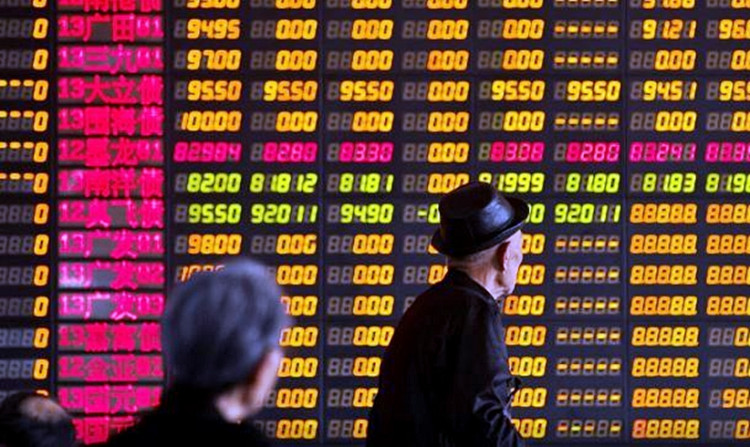The baffling contagion that wrought havoc on the U.S. stock market on Tuesday made it to Asia this morning and the results were brutal.
Stocks in Asia tumbled in early trading following another plunge on Wall Street overnight that saw a major sell-off hit major U.S. stock indices. The extensive pullback saw the Dow Jones Industrial Average and S&P 500 surrender all the gains they accumulated over the entire year.
The NASDAQ Composite wasn't spared, and surprisingly entered correction territory in an ominous sign investor confidence continues to be battered by a mass of uncertainties.
Overnight on Wall Street, the Dow shed a massive 608.01 points at 24,583.42 thereby wiping out all of its gains for 2018. The S&P 500 fell by 3.1 percent to close at 2,656.10 and also turned negative for the year. The NASDAQ Composite dropped 4.4 percent to 7,108.40 - entering correction territory.
The CBOE Volatility Index (VIX), widely accepted as the best gauge of fear in the market, surged more than 21 percent to 25.23. It's risen more than 100 percent this month.
Wall Street's misery quickly spread to Asia. At the opening bell Thursday, China's Shanghai Composite fell 1.79 percent while the Shenzhen composite saw a reduction of 2.15 percent. In Hong Kong, the Hang Seng index lost 1.81 percent. Japan's Nikkei 225 traded down 3.35 percent; the Topix index fell by 2.76 percent.
In South Korea, the KOSPI fell 2.8 percent. Shares of Samsung Electronics and SK Hynix both fell by more than 3 percent each.
SK Hynix reported record third-quarter operating profit on Thursday, beating expectations, but even this bit of heartening news didn't save it from being victim to future worries. SK Hynix shares were down 4.65 percent in the morning.
Australia's ASX 200 fell 2.26 percent, with all sectors losing value. The energy subindex lost 2.36 percent while the heavily weighted financial sector dropped 2.29 percent.
U.S. financial experts believe they've pinpointed the reasons for the lower market sentiment in recent weeks. These reasons include worries global growth is losing steam; earnings disappointment; international criticism leveled at Saudi Arabia over the killing of a dissident journalist and the prospect of higher U.S. interest rates.
Adding to that list of woes is the growing uncertainty over the China.- US trade war, which some investors fear could lower 2019 profits.
Wall Street will post its worst October since the Great Recession of 2008 largely on negative investor sentiment ignited by Trump's trade war on the world; China's ongoing economic slowdown and rising U.S. interest rates savaging emerging markets.
Another clear-cut manifestation of the incredible volatility roiling U.S. equity markets emerged Tuesday when the broader U.S. stock market dropped for the 12th time in the past 14 days led by the Dow.





